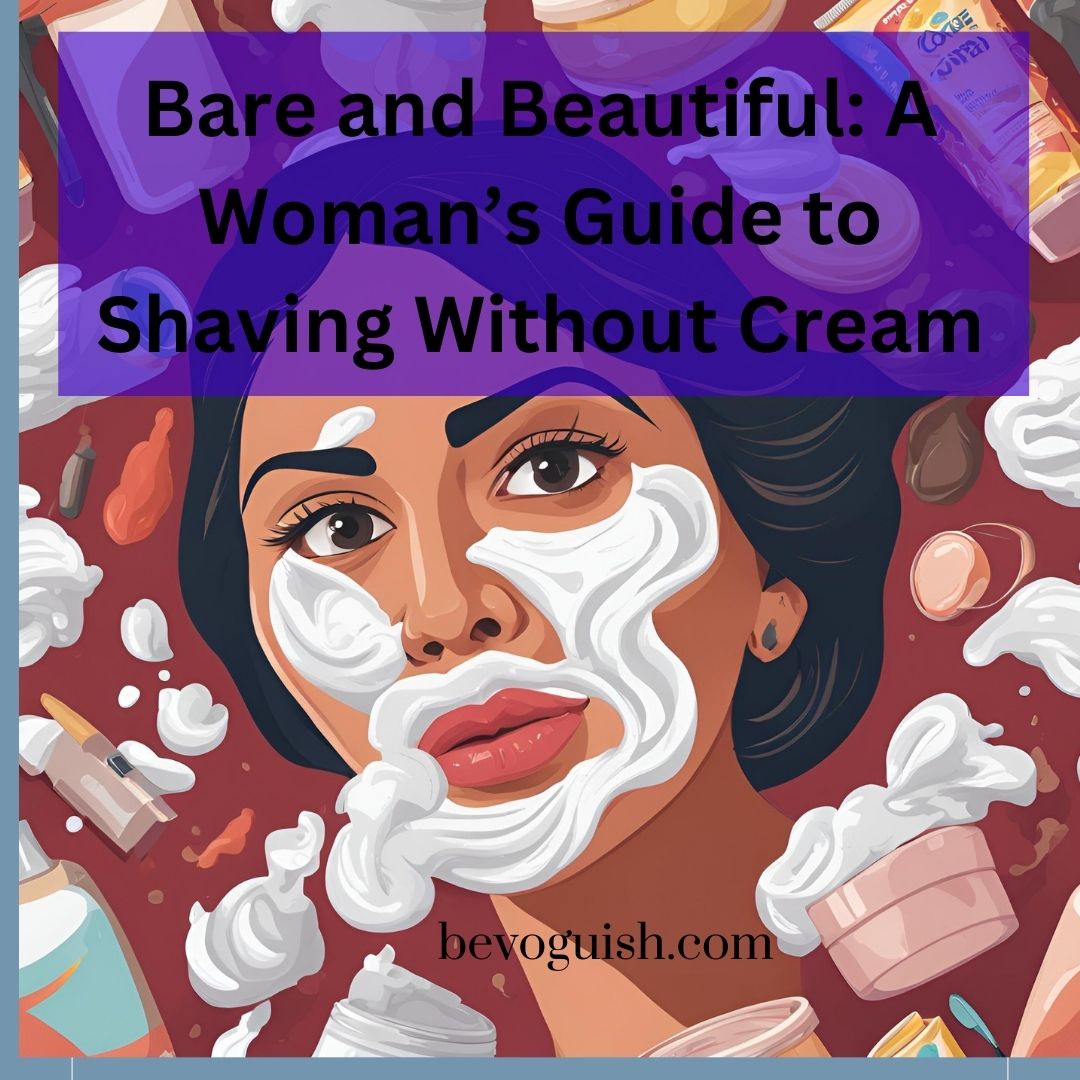
A Woman’s Guide to Shaving Without Cream
Shaving Without Cream?As women, we often feel pressured to maintain perfectly smooth, hairless skin. While shaving is a common method for hair removal, it can be a hassle, especially when you’re out of shaving cream. However, did you know that you can achieve a close, comfortable shave without relying on traditional shaving products?
Shaving is a regular part of grooming for many people, but finding yourself without shaving cream can be a hurdle. Not to worry, there are alternative methods to achieve a smooth shave without the traditional shaving cream. Let me walk you through seven essential steps to help you navigate this situation safely and effectively.
The Importance of Shaving Cream
Shaving cream serves several crucial purposes:
– Lubrication: It creates a slippery barrier between the razor and the skin, reducing friction.
– Softening Hair: It helps to soften hair, making it easier to cut.
– Protection: It minimizes the risk of nicks, cuts, and razor burn.
While using shaving cream is ideal, rest assured that you can still achieve a good shave without it by following the right steps.
Yes, You Can Shave Without Shaving Cream
It is indeed possible to shave without shaving cream, but it does come with an increased risk of skin irritation, nicks, and cuts. That’s why it’s essential to take precautions and use suitable alternatives to ensure a safe and comfortable shaving experience.
7 Steps to Shave Without Shaving Cream
Step 1: Preparing Your Skin
To kick things off, start by prepping your skin for a smoother shave.
– Cleanse Your Skin: Use warm water and a mild cleanser to cleanse your skin thoroughly.
– Exfoliate: Gently exfoliate with a physical or chemical exfoliant to remove dead skin cells and impurities that could clog your razor.
This process will open up your pores and soften your hair, making shaving easier.
Step 2: Opt for a Clean, Sharp Blade
A dull blade can lead to more friction and potential injuries.
– Choose Wisely: Always go for a new or well-maintained blade. If using disposable razors, replace them frequently.
– Keep It Clean: Regularly clean your razor with rubbing alcohol to prevent bacterial growth.
Using a sharp blade will help minimize cuts and razor burn.
Step 3: Find an Alternative Lubricant
In the absence of shaving cream, it’s crucial to find an effective substitute for lubrication. Consider these excellent alternatives:
– Baby Oil: Provides moisture and is gentle on the skin.
– Coconut Oil: Acts as a great moisturizer, but may be better suited for body shaving rather than facial hair.
– Hair Conditioner: Helps reduce friction with its hydrating properties.
– Liquid Soap or Body Wash: While not the ideal choice, they can work as last-resort options.
Choose a product that suits your skin type and hair texture for optimal results.
Step 4: Applying the Alternative Product
Once you’ve selected your lubricant, apply it generously:
– Spread Evenly: Use your hands or a brush to spread a thin layer evenly over the areas you plan to shave.
– Ensure Full Coverage: Make sure all areas are well-lubricated to prevent irritation during shaving.
Step 5: Shaving with Care
Now that you’re all set to shave, pay attention to your technique:
– Gentle Pressure: Avoid pressing too hard on the razor; let it glide over your skin.
– Short Strokes: Start with short strokes in the direction of hair growth to minimize irritation.
– Rinse Regularly: Clean your razor after every few strokes to remove hair and product buildup.
Taking your time during this step is key to avoiding nicks and cuts.
Step 6: Patience is Key
Shaving without cream requires patience:
– Avoid Rushing: Take your time to ensure each stroke is controlled and deliberate.
– Be Mindful of Sensitive Areas: Give extra care to areas like the neck or underarms due to their sensitivity.
By proceeding slowly, you reduce the chances of accidents.
Step 7: Rinse and Moisturize
After shaving, ensure you rinse your skin properly:
– Cold Water Rinse: Rinse with cold water to close pores and remove any residual product.
– Moisturize: Apply an aftershave balm or moisturizer suitable for your skin type to soothe irritation and hydrate your skin post-shave.
Remember to disinfect your razor with rubbing alcohol after each use to maintain hygiene.
Alternative Shaving Methods
- Dry Shaving Techniques: Explore the best practices for shaving without any lubrication, including tips for minimizing irritation.
- Using Soap as a Lubricant: Discuss the effectiveness of using regular soap for shaving and how to properly apply it.
Conclusion
Shaving without shaving cream can be done effectively by following these seven steps. While having traditional products is preferred for optimal results, these techniques ensure you can maintain a smooth appearance even in a pinch.
Always prioritize your skin health by selecting suitable alternatives and practicing careful shaving techniques. By doing so, you can enjoy a comfortable grooming experience without compromising on quality results.
Post Views: 251


